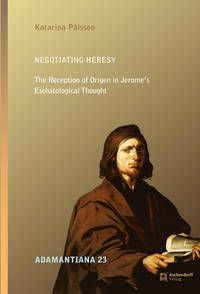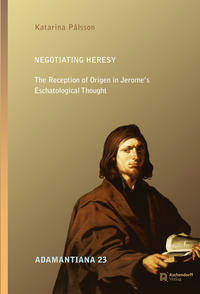
- Afhalen na 1 uur in een winkel met voorraad
- Gratis thuislevering in België vanaf € 30
- Ruim aanbod met 7 miljoen producten
- Afhalen na 1 uur in een winkel met voorraad
- Gratis thuislevering in België vanaf € 30
- Ruim aanbod met 7 miljoen producten
Zoeken
€ 117,45
+ 234 punten
Omschrijving
Jerome of Stridon has gone down in the history of Christianity as a fierce defender of what he considered to be orthodox teaching, and, in particular, as a convinced opponent of Origenism. However, this champion of orthodoxy often found himself suspected of relying on heretical writers, and a main purpose of his heresiological efforts was to defend himself against such accusations. The present study argues that this was the case with his production of anti-Origenist polemics in the context of the Origenist controversy. It aims at contributing to a nuanced description of Jerome's way of relating to Origen's thought, which implied acceptance as well as resistance. It is suggested that as a result of Jerome's anti-Origenist rhetoric, important aspects of his reception of the Alexandrian writer have been overlooked by modern scholarship. Taking account of the rhetorical strategies that Jerome used both in his presentation of Origen and in his orthodox self-presentation, the great complexity of his reception of Origen is revealed.
Specificaties
Betrokkenen
- Auteur(s):
- Uitgeverij:
Inhoud
- Aantal bladzijden:
- 249
- Taal:
- Engels
- Reeks:
- Reeksnummer:
- nr. 23
Eigenschappen
- Productcode (EAN):
- 9783402137451
- Verschijningsdatum:
- 18/11/2021
- Uitvoering:
- Hardcover
- Formaat:
- Genaaid
- Afmetingen:
- 163 mm x 23 mm
- Gewicht:
- 267 g

Alleen bij Standaard Boekhandel
+ 234 punten op je klantenkaart van Standaard Boekhandel
Beoordelingen
We publiceren alleen reviews die voldoen aan de voorwaarden voor reviews. Bekijk onze voorwaarden voor reviews.







